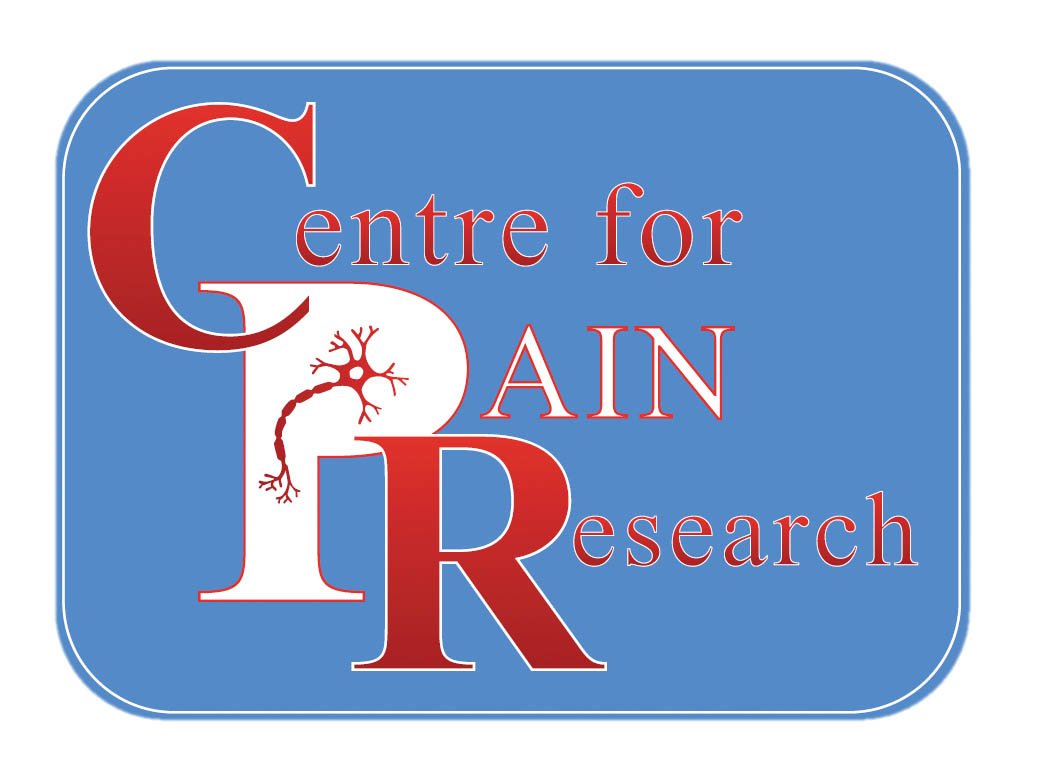The Cancer Clinical Research Trust (CCRT) recently hosted a panel of world-leading oncology researchers who presented their research findings at the 11th International Symposium on Translational Research in Oncology (TransOncXI), which took place on 27-29 September in Dublin. The inaugural Irish TransOnc meeting was a joint undertaking between Dublin City University (DCU), the Irish Cooperative Oncology Research Group (ICORG), and University California Los Angeles (UCLA), US, and was hosted by Prof Dennis Slamon of UCLA and Prof John Crown, Consultant Oncologist, St Vincent’s University Hospital (SVUH), Dublin. The TransOnc meeting series encourages the presentation of studies of novel therapeutic approaches to treat patients with cancer that may not have progressed to the clinic. It also encourages presentations on treatments that are currently being tested in clinical trials throughout the world, including Ireland. Finally, talks are accepted from clinicians and pharmaceutical companies regarding treatments that have graduated to ‘accepted, standard treatment’ status and are making a significant difference to cancer patients.
The most recent iteration of TransOnc, TransOncXI, had its meeting agenda expanded to three days this year due to growing interest from researchers in Ireland and abroad. TransOncXI invited speakers from California, New York, Connecticut, Seattle, South Carolina, Israel, Houston, Paris and Australia, in addition to the numerous speakers from Irish hospitals and universities and representatives from pharmaceutical companies with interests in oncology.
Targeted therapies
TransOncXI included talks that aimed to highlight the use of novel targeted agents for the treatment of cancer. Included in the meeting were talks on treatment options for patients with metastatic HER2-positive (HER2+) breast cancer. Whilst treatment of primary HER2+ breast cancer with drugs such as pertuzumab and trastuzumab has been successful, a proportion of women still relapse on their treatment.
Renowned breast cancer clinician and researcher Dr Mark Pegram from Stanford University, US, who played a major role in developing the drug herceptin as a treatment for HER2+ breast cancer, was the first speaker at the meeting and he discussed overcoming resistance to HER2-targeted therapy. He began his talk by highlighting the extensive list of potential mechanisms of acquired resistance to HER2-targeted therapies that contribute to metastasis, but highlighted that nearly one-third of these have not yet been supported by clinical or translational evidence. He indicated that fundamental analysis of these resistance mechanisms needs to be furthered in relevant patient samples.
Dr Pegram also discussed the treatment options for the subset of patients who have low expression of HER2 in their cancer that are resistant to current HER2-targeted therapies. He presented data demonstrating that novel antibody drug conjugates (ADCs) may offer a treatment option to these women: ADCs consist of a monoclonal antibody (such as trastuzumab) which is chemically linked to a cytotoxic chemotherapy drug. The ADC works by the monoclonal antibody binding to a cancer-specific protein and uses this antibody to deliver the chemotherapy drug directly to the cancer cell, resulting in its death. However, the normal, healthy cells that do not express the ‘cancer protein’ remain unharmed. Dr Pegram believes that future study of these ADCs in this setting deserves further work.
Also discussing targeted therapies and the issue of resistance, Dr Denis Collins, National Institute for Cellular Biotechnology, DCU, presented encouraging data addressing how to overcome neratinib resistance in HER2+ breast cancer cell line models. Neratinib was recently approved by the European Medicines Agency (EMA) for use in the extended adjuvant treatment of women with oestrogen receptor-positive (ER+), HER2+ breast cancer. Neratinib is also approved for both extended adjuvant and metastatic use in women with HER2+ breast cancer by the US Food and Drug Administration (FDA). Whilst neratinib has demonstrated clinical efficacy in HER2+ breast cancer, as with many tyrosine kinase inhibitors, acquired resistance is a common issue. Dr Collins’s results demonstrated how combinations of neratinib and SRC kinase inhibitors can be used to treat these resistant cancers, and his data strongly supports the testing of the combination in clinical trials.
ER+ breast cancer accounts for nearly 70 per cent of all diagnosed breast cancers, and speaker Prof Richard Finn, Professor of Clinical Medicine, UCLA, led the clinical development of palbociclib for the treatment of this cancer. Palbociclib, a CDK4/6 inhibitor, was repurposed by Prof Dennis Slamon and Prof Finn as a treatment for ER+ breast cancer based on laboratory-based assays conducted in their UCLA lab. The clinical development of CDK 4/6 inhibitors has greatly improved the management of metastatic ER+ breast cancer.
Prof Finn’s presentation included an overview of mechanisms of acquired resistance to CDK4/6 inhibitors and novel therapeutic strategies using dual targeted approaches to treat CDK4/6 resistant cancers. However, Prof Finn warned that the issue of toxicity would be a major factor in deciding which therapeutic strategies actually progressed to clinical trial. His take-home message was that the key to success of palbociclib lies with the identification of rational combinations and those patients most likely to benefit from their use, which is based on robust preclinical observations. This is a salient message that is highlighted by the high rate of drug failures during clinical trials.
Dr Maurizio Scaltriti from Memorial Sloan Kettering Cancer Centre (MSKCC) in New York presented data focused on how inhibitors of the PI3K/AKT signalling pathway are progressing in clinical trials of women with ER+ metastatic breast cancer. Despite underwhelming results in PI3K inhibitor clinical studies, Dr Scaltriti believes that more appropriate biomarker selection will increase the likelihood of success of PI3K therapies. To support his hypothesis, Dr Scaltriti identified that a proportion of women with ER+ breast cancer have co-occurring mutations in the PIK3CA gene.
These dual mutant PIK3CA breast cancers have a more durable response to PI3K inhibitors when combined with aromatase inhibitors. Therefore, to ensure better results from PI3K inhibitor studies, it is essential that we select better biomarkers to ensure patients achieve the best results clinically.
Dr Lesley-Ann Martin from the Institute for Cancer Research (ICR) in London presented further data on how to treat metastatic ER+ breast cancer. Dr Martin identified that neratinib can be an effective treatment for metastatic ER+ breast cancer when combined with PI3K/AKT pathway inhibitors. Interestingly, she demonstrated that the combination of PI3K inhibitors and neratinib has anti-cancer effects in those ER+ breast cancers that are already resistant to treatment with hormone-based therapies. Dr Martin advised the audience that targeting the intra-cellular signalling crosstalk that exists between the ER and down-stream signalling pathways still remains problematic, however, and is an area deserving further research.
DNA damage repair research
TransOncXI also invited speakers to discuss novel drugs that are designed to target the DNA damage repair pathway in cancer. Prof Sara Hurvitz, UCLA, presented data that focused on the role of PARP inhibitors in the treatment of triple-negative breast cancers (TNBC). TNBC accounts for approximately 15 per cent of all breast cancers and is defined as being negative for expression of ER, progesterone receptor (PR) and HER2. Behind HER2+ breast cancer, TNBC is the most aggressive form of the disease, and, to date, no targeted drug has been approved for TNBC.
Prof Hurvitz reviewed the current clinical findings that support the use of PARP inhibitors in patients with BRCA-mutated cancers. PARP helps to repair DNA when it becomes damaged as a result of radiation and platinum-based chemotherapy. In cancer treatment, blocking PARP may help keep cancer cells from repairing their damaged DNA, which will result in the cancer cells’ death. In this setting, PARP inhibitors such as olaparib have been licensed to treat women with BRCA-mutated breast cancer. However, Prof Hurvitz presented interesting clinical data demonstrating the benefit of PARP inhibitors in those cancers that are non-BRCA mutated but which have ‘BRCAness’. BRCAness is the term used to describe a cancer that does not have a germline BRCA mutation but does have defects in its homologous recombination pathway; a pathway that is also involved in the repair of damaged DNA. BRCAness can be caused by either germline or somatic mutation mutations (apart from BRCA mutations), which occur in the extended homologous repair pathway. Germline mutations in the homologous recombination pathway account for approximately 4-to-5 per cent of cases, whilst somatic mutations account for a further 10 per cent of cases. The importance of BRCAness is that it is also linked to clinical sensitivity to platinum agents and PARP inhibitors. Results of a recent clinical trial called I-SPY2 (which included a significant proportion of women who had BRCAness) found that patients treated before surgery (neoadjuvant) with a platinum regimen combined with a PARP inhibitor (veliparib) had a significantly greater response to PARP and platinum treatment relative to those patients treated with standard neoadjuvant treatment alone. The hope now is to identify and functionally determine the impact of these BRCAness mutations, so that patients can be effectively selected for future clinical trials.
Prof Joe Duffy, SVUH Clinical Research Centre, presented work on a set of compounds that result in the reactivation of the p53 pathway. The p53 gene is the gate-keeper that controls and regulates normal cells. However, the p53 gene is frequently mutated in the development of cancer, resulting in the deregulation of the healthy cell, which can lead to a cancer developing. Prof Duffy and his lab have analysed several p53 drugs in TNBC models, due to its high frequency of p53 mutations (approximately 70 per cent of TNBC). Prof Duffy has shown the benefit of this strategy in targeting p53 TNBC, which can result in the death of the cancer cell and the inhibition of its migration — results which may have implication for the treatment of metastatic breast cancers. Prof Duffy also believes that p53 mutational status or p53 protein levels may be a predictive biomarker for response to these agents. It is hoped that Prof Duffy’s work will be progressed into a clinical study to assess the impact of these p53 compounds in patients with p53 mutant TNBC.
Hard-to-treat cancers
TransOncXI invited speakers to discuss their results in hard-to-treat cancers, such as sarcoma, or those with high mortality rates, such as pancreatic cancer. Turning the focus to familial pancreatic cancer, Prof Maeve Lowery, Professor of Translational Cancer Medicine, Trinity College Dublin (TCD), presented data demonstrating how pathogenic germline mutations, which occur in the DNA damage response pathway in pancreatic cancer, may play a role in determining response to platinum-based agents. Despite Prof Lowery’s exciting data, she felt that the prognostic implications of pathogenic germline mutations in pancreatic cancer remain unclear. She also highlighted that because of the highly aggressive nature of this disease, it may be difficult to observe the optimal results of these therapies, unless patients receive quick administration of their appropriate therapy.
However, she believes that we need to determine the functional significance of these germline alterations in DNA repair genes, which may allow for future prospective studies to enable us to stratify patients based on their pathologic germline alterations.
To close the session of targeted therapy in the treatment of cancer, Dr Gary Schwartz, Columbia Presbyterian University, US, discussed novel treatment options for patients with sarcoma. Recent media reports have stated that in Ireland, ‘sarcoma patients have to wait two years for a cancer expert’, however, the data presented by Dr Schwartz indicated the significant progress being made to treat this diverse range of diseases.
The night before TransOncXI, Prof Crown invited Dr Schwartz to speak at a public/patient forum called ‘Dare to Cure’, where patients, carers and families could meet world-leading experts to discuss the current treatment options and advances being made for their disease. At both the ‘Dare to Cure’ and the TransOncXI meeting, Dr Schwartz spoke about the advances being made to treat patients with sarcoma. He specifically highlighted the new targeted therapeutic approaches, which are offering new promise for patients with soft-tissue sarcomas. Dr Schwartz believes that laboratory-based approaches can provide new insights into the sarcoma cancer biology and provide opportunities for future cancer therapy, whether this be targeted therapy or even novel immunotherapies. He concluded that clinicians are now on the edge of meaningful and profound changes in how we treat this series of diverse diseases.
Immunotherapy
A regular and very popular theme of the TransOnc meetings has been the study of immuno-oncology, and this year the immunotherapy session was chaired by Prof Mario Sznol, Professor of Medicine (Medical Oncology), Yale Cancer Centre, US. Novel immunological treatments have demonstrated enormous benefits for patients with lung cancer and melanoma. Prof Sznol, a world-leading immunotherapy expert, spoke about the ‘Determinants of response to immune therapies’. Whilst Prof Sznol was delighted to update the audience as to the great success that patients have achieved on these treatments, he felt that the biggest challenge oncologists face exists around the development of robust and reliable biomarkers to select patients who will benefit from immune anti-cancer therapies. Prof Sznol noted that this area is very complex and that biomarker development is affected by multiple factors, including heterogeneity of expression, the undefined dynamic changes in the tumour microenvironment after intervention, and that the relevant biomarker may not be present in baseline samples. He believes that further research into biomarker identification is required.
Also speaking during this session was Prof Giuseppe Gullo, UCD and SVUH, who presented a summary of the data surrounding the prognostic impact of tumour-infiltrating lymphocytes (TILs) in breast cancer. Prof Gullo confirmed that there is a growing understanding of the functions of immunological TILs in HER2+ breast cancer and the prognostic impact they can have on a patient’s outcome. He believes that the current TIL data support their testing in the neoadjuvant treatment of breast cancer and promoted their routine study in this setting. However, Prof Gullo felt that the data supporting the use of TILs as predictive biomarkers for overall survival is not clear-cut and should be further studied.
Finally, Prof Gullo queried whether our knowledge of TILs is great enough for them to be used to guide treatment choices. He presented data and made a strong argument that TILs can be potentially applied to allow the de-escalation of treatment if patient immunological responses are strong enough.
Continuing the study of the immune response in cancer, Prof Lajos Pusztai, Yale Cancer Centre, presented data looking at the immune environment of metastatic breast cancers. Prof Pusztai’s data found that metastatic breast cancers are immunologically more inert than primary tumours. They have fewer TILs, lower expression of classic immunotherapy ‘biomarkers’ such as PD1/PD-L1/CTLA-4 expression, and also lower expression of immune-oncology response predictive signatures. However, Prof Pusztai concluded that despite the relatively non-immunological background of metastatic breast cancers, the expression of several existing and potential immuno-oncology targets is preserved in metastases and these represent therapeutic opportunities that deserve further study.
Angiogenesis
Addressing the angiogenesis session, Prof Yuval Shaked, Nanotechnology Institute Technion-Israel Institute of Technology, Israel, presented data on the impact of drug therapy on the tumour microenvironment, and how this can be targeted in cancer treatment. Prof Shaked believes that accessory cells, which include bone marrow-derived pro-angiogenic cells within the tumour microenvironment, may undergo a functional and phenotypic switch following anti-cancer drug therapy. Prof Shaked believes that this cellular phenotype switch may induce tumour cell aggressiveness and metastasis. He believes that blocking factors may mediate this phenotype switch, and that by understanding these blocking factors, we may be able to restrict tumour growth, or identify strategies to target blocking factors which may contribute to the anti-cancer effects of either chemotherapy or targeted therapies.
TransOnc also invited Prof Robert Kerbal, Sunnybrook Cancer Institute, Toronto, Canada, who was chair of the angiogenesis session, to present data supporting the use of low-dose metronomic (LDM) chemotherapy. LDM chemotherapy is the frequent and continuous use of low doses of conventional chemotherapeutics, which represents an emerging alternative to conventional chemotherapy. Prof Kerbal stated that despite the uncertainty about its mechanisms, combined preclinical and clinical data indicate promising efficacy, with reduced toxicity. LDM therapy has demonstrated the greatest clinical results, so far, in its use as a chronic maintenance therapy, which follows induction therapy or conventional therapy in either the early- or late-stage metastatic disease. Prof Kerbal believes that it is now necessary to undertake additional detailed preclinical studies comparing LDM chemotherapy versus conventional maximum-tolerated dose chemotherapy using the same drug in head-to-head comparisons.
Personalised medicine
Finally, TransOncXI held a session that discussed the use of personalised medicine approaches to treat cancer. Prof Steve Shak, Chief Scientific Officer, Genomic Health, provided the audience with updated results from the TAILORx study on the Oncotype DX test, a study that aimed to define the benefit of adding chemotherapy onto endocrine therapy for women with early-stage luminal breast cancer. The TAILORx study recruited hundreds of patients from Ireland, and Prof Shak was keen to acknowledge the huge contribution that Irish patients had made to the success of the trial. Using the Oncotype DX scoring system, Prof Shak presented data demonstrating that those women who had a recurrence score of between 11-to-25 had a similar response to endocrine therapy alone relative to receiving endocrine therapy and chemotherapy. His results demonstrated an expanded population who would not require chemotherapy for the treatment of their disease. However, Prof Shak did note that patients with a recurrence score of greater than 26 still had significantly higher event rates, driven by more recurrences, despite the use of adjuvant chemotherapy plus endocrine therapy. He concluded by stating that we must work harder to identify effective therapeutic regimens for these women.
In addition, Prof Jérôme Galon, Laboratory of Integrative Cancer Immunology, INSERM, Paris, France, presented data on Immunoscore and its use in determining treatments for patients with colorectal cancer. Immunoscore has been found to be superior to microsatellite instability in predicting patients’ disease-specific recurrence and survival. Study findings indicate that assessment of the immune status via Immunoscore provides a potent indicator of tumour recurrence beyond microsatellite-instability staging that could be an important guide for immunotherapy strategies.
Conclusion
TransOncXI was a huge success, enabling presentation, discussion and networking between the Irish attendees and the international presenters. The meeting encouraged vigorous debate on the novel treatment options that are currently being tested in the clinic and provided exciting updates on novel treatment strategies for patients who suffer with cancer. The quality of the speakers and the scientific results presented to the audience were noted by all attendees. As Prof Crown closed this year’s meeting, the planning for TransOncXII is already underway
Dr Alex J Eustace (PhD), Research Lead for Molecular Therapeutics for Cancer in Ireland, National institute for Cellular Biotechnology, DCU











Leave a Reply
You must be logged in to post a comment.